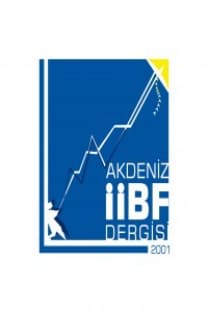GELİR ESNEKLİĞİNİN VE KENTSEL DÖNÜŞÜM UYGULAMALARININ KONUT TALEBİNE ETKİSİNİN VECM YÖNTEMİ İLE TAHMİN EDİLMESİ
Konut, hem mal hem de yatırım aracı olması dolayısıyla ekonomide büyük bir yer tutar. Bununla birlikte konut, sosyal ve kültürel dönüşümü de içinde barındıran önemli bir kavramdır. Gelir dağılımı, sosyo-ekonomik adalet ve bölgesel dengesizlik gibi unsurlar kentlerin dönüşümü için temel nedenleri oluşturmaktadır. Türkiye’de son dönemlerde ağırlık kazanmış olan kentsel dönüşümün konut talebi ve konutun gelir esnekliğine olan etkisinin analiz edilmesi ve konut piyasasının uzun ve kısa dönem esnekliklerinin bulunarak, konut piyasasının dengeye gelme hızının ölçülmesi makalenin amacını oluşturmaktadır. Model, 2002.1 ve 2012.3 yılları arasında konut talebi göstergesi olarak kullanılan “ Yapı Kullanım Belge Endeksi” ve “Gelir” arasındaki ilişkiyi analiz etmektedir. Analiz iki kısımdan oluşmaktadır. İlk kısımda, Engle-Granger Eştümleşme testi aracılığıyla değişkenler arasında eştümleşme olup olmadığı araştırılacaktır. İkinci kısımda ise Vektör Hata Düzeltme Modelinden (VECM) yararlanarak, kısa ve uzun dönem esneklikler tahmin edilecek ve uzun dönem dengesine yaklaşma hızı analiz edilecektir. Kentsel dönüşümün konut talebine etkisi ise kukla değişkenler yardımıyla incelenmiş ve kentsel dönüşümün konut talebini artırdığı sonucuna ulaşılmıştır
ESTIMATION OF INCOME ELASTICITY AND URBAN TRANSFORMATION EFFECT ON HOUSING DEMAND: A VECM APPROACH
Housing is both good and investment assets so that it plays an important role in the economy. It is also an important concept for social and cultural transformation. Income distribution, socio-economic justice and regional disparities are the main reasons for the transformation of cities. This paper aims to study the effects of both urban transformation to housing demand and income elasticity of housing demand. Data used cover the period from 2002.1 to 2012.3. The analysis allows estimating the short run and long run elasticities and the speed of adjustment. This analysis consists of two parts. In the first part, the existence of cointegration between variables has been checked by the Engle-Granger Cointegration Test. In the second part of the study, the short run and long run elasticities have been estimated. Also, the speed of adjustment has been analyzed by using Vector Error Correction Model (VECM). The effect of urban transformation to housing demand will be examined with the help of dummy variables. The results indicate that urban transformation increased the housing demand.
Keywords:
Housing Demand Urban Transformation, VECM,
- ISSN: 1302-9975
- Başlangıç: 2001
- Yayıncı: Akdeniz Üniversitesi
Sayıdaki Diğer Makaleler
FİNANSAL ÇARPANLARA DAYALI DEĞERLEMENİN TEMEL ESASLARI
Selahattin BEKMEZ, Aslı ÖZPOLAT
Meltem KARAATLI, Nazlı DEMİRCİ, Nuri ÖMÜRBEK
YURTİÇİ SATIŞLAR VE İHRACAT ARASINDAKİ KARŞILIKLI İLİŞKİ: TÜRKİYE İMALAT SEKTÖRÜ ÖRNEĞİ 1996-2010
Cemil ÇİFTÇİ, Dilek DURUSU ÇİFTÇİ
Turizmi Bilgisinin GELİŞİMİ, Gökhan ÖZKUL, Onur SUNGUR, Murat Ali DULUPÇU
Hamza ÇEŞTEPE, Ertuğrul YILDIRIM, Melike BAYAR
TEHDİT ALGILAMALARI EKSENİNDE RUSYA’NIN YAKIN DÖNEM KAFKASYA VE ORTA ASYA POLİTİKASI
